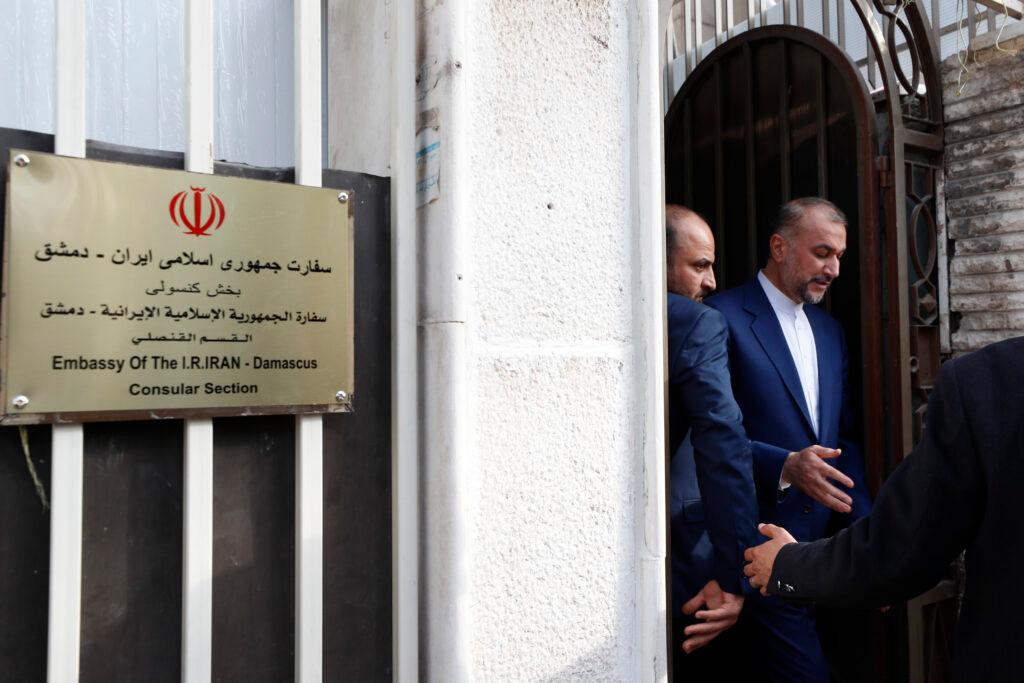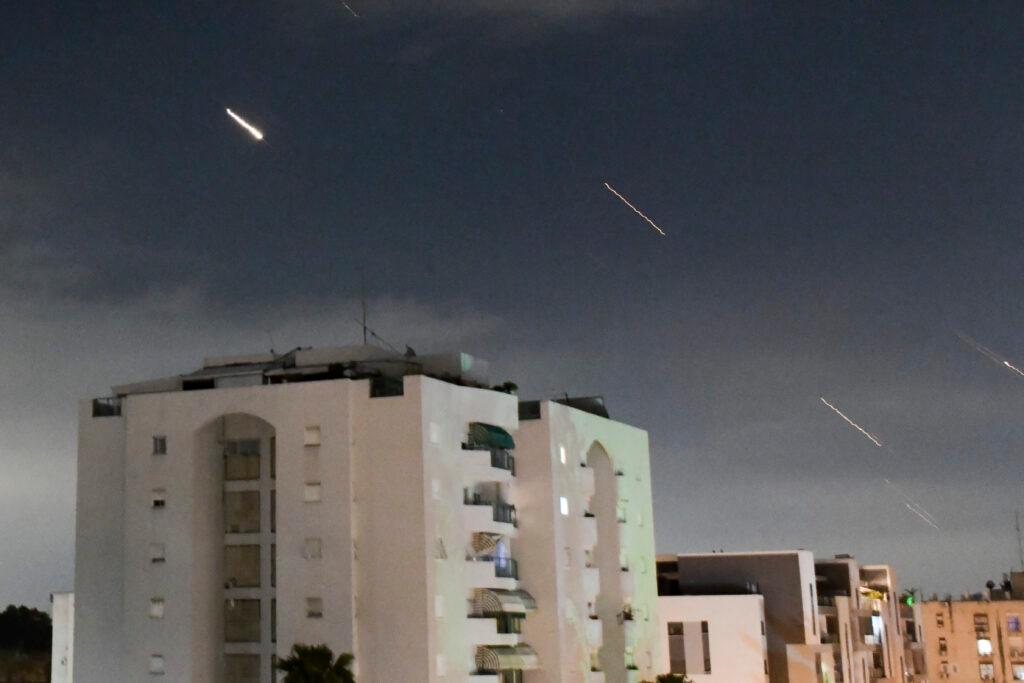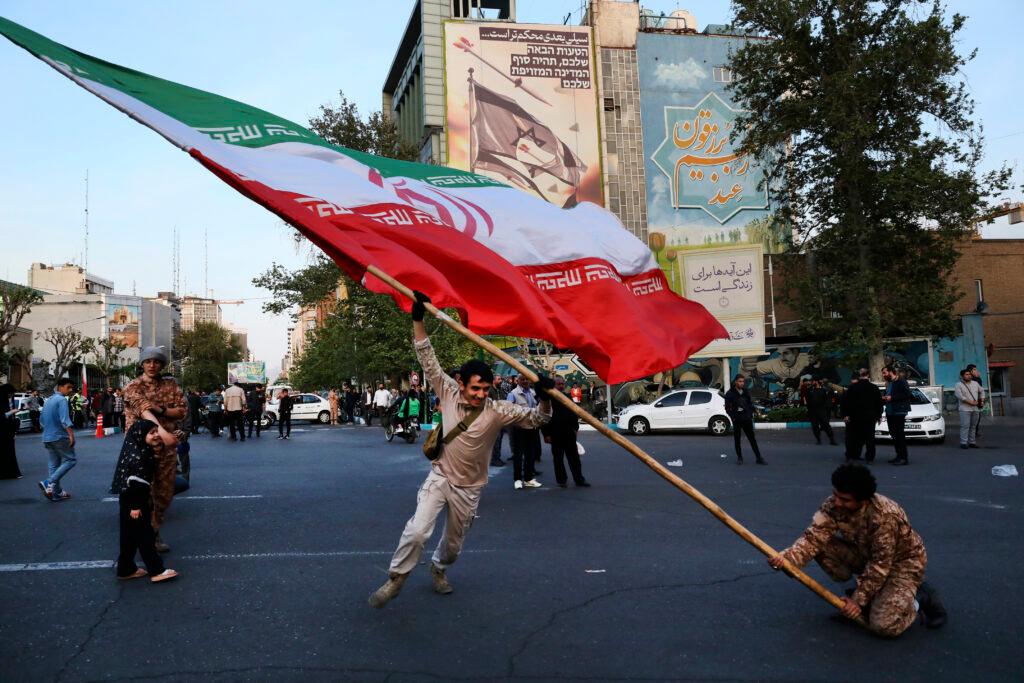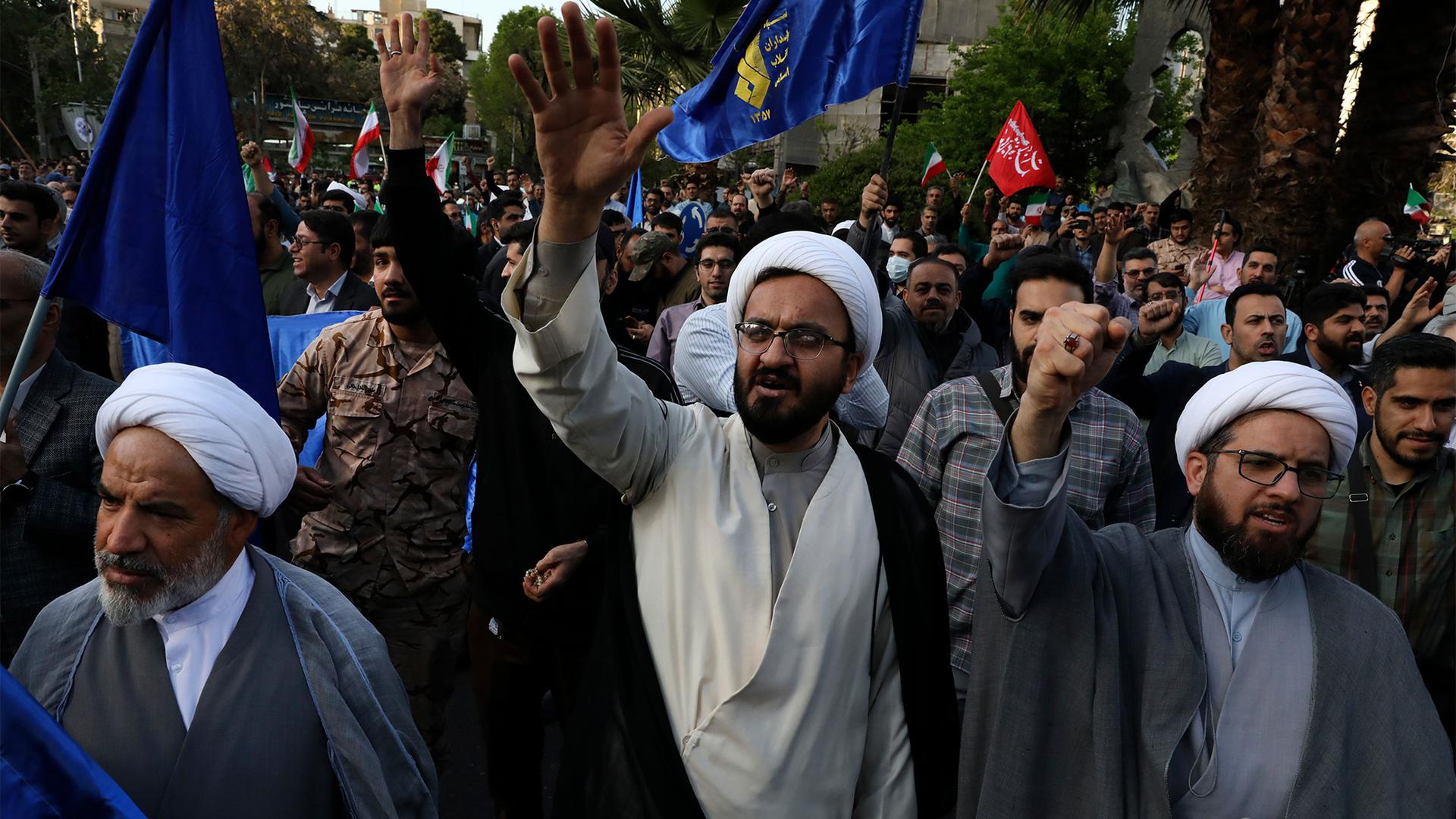US National Security Council spokesman on heightened tensions between Iran and Israel: ‘We don’t want to see this conflict widen and deepen’
Israel has called on dozens of nations to impose new sanctions on Iran’s missile program, which the US has agreed to do in the coming days.
The move comes days after Tehran launched, for the first time ever, an aerial attack from its soil directly at Israel.
Iran’s foreign minister, Hossein Amir-Abdollahian, said through an interpreter on Al Jazeera that his country will respond “swiftly” if Israel retaliates for the strike.
Diplomats are calling on Israel to show restraint.
The World’s host Marco Werman spoke to John Kirby at the White House about the situation. He’s the spokesman for the National Security Council, which advises the president on security and foreign policy.
Marco Werman: Is a retaliatory attack on Iran an option that the Israelis are considering?
John Kirby: They have to make their own decisions and speak to their decisions. We don’t want to see a war with Iran. We don’t want to see this conflict widen and deepen. However, we will do what we have to do to help Israel with its self-defense, as we proved on Saturday night.
And the event that appears to have triggered Iran’s attack on Saturday — that event in the first place, a missile strike on the Quds commander in Damascus, destroying the Iranian Consulate — was the US consulted on that, and from a security point of view, endangering an already volatile region? What are your thoughts about Israel making that move?
Well, without getting into the details of that particular strike, I won’t do that, I would just say that the United States was not informed or involved in any way.

And concerns now about what that kind of decision might mean for the future?
Again, what we saw on Saturday night was unprecedented. I mean, more than 300 missiles and drones fired at Israel from Iran-proper. There’s no justification for that. There just isn’t. It’s completely unacceptable and condemnable. And in fact, we have condemned it, as [have] so many other leaders around the world.

As in many situations like this, a country’s internal politics, play a big role in what any response might be. And we’re seeing this hard-right coalition right now in Israel, a constant drumbeat from them to retaliate. Do you really think that Prime Minister [Benjamin] Netanyahu could not retaliate and maintain his current political position?
So, I can’t speak to what pressures Prime Minister Netanyahu may be feeling from what corners and how that’s affecting his decision making. Look, the Israelis have said publicly that they intend to respond. They’ve said that they’re going to do it in a manner and a time of their choosing. I’ll let them speak to that. All I can speak to is what we are doing in the region and what President [Joe] Biden’s priorities are, and that is, again, to help Israel defend itself. And we are still doing that.
So, you made a point of the successful show of defensive force on Saturday night — Iron Dome and the taking out of the drones and missiles. But we should also note that Iran now has a very clear sense of Israel’s defenses. So many drones and missiles were launched across Israeli territory. How crucial is that intel to Iran right now?
Well, look, I think, there were some rumors coming out of the region, and Iran was sort of seeding it into the narrative that they meant to fail. “We weren’t really trying to do this and cause any real damage. We were just trying to send a signal.” Let me tell you something. You’ve launched 300 missiles and drones. You’re not sending a signal. You’re trying to cause damage. You’re trying to kill people. That was absolutely their intent. It’s not like they don’t know that Israel has a very capable air defense system. Everybody in the region knows. Heck, everybody in the world knows. And they knew, too. And that’s one of the reasons they launched over 300 missiles and drones, because they knew that some of them weren’t going to get through, but they knew and hoped that some of them would. I think they’re probably a little bit surprised by how few actually got through and how little damage they caused, but believe me, they wanted to cause damage. This was not some symbolic effort. Now, as for the intel picture again, I won’t get into that publicly, and I certainly can’t speak for what Iran thinks they know or they don’t know. I’ll tell you one thing that I’m confident they do know now, and that is that the United States, when we say we’re going to help with the defense of Israel, we mean it. And we’re putting skin in the game, literally putting skin in the game. And number two, I think they know that Israel does not stand alone in the region, that Israel has friends. Friends that will come to their assistance.
John Kirby, let’s go back to Gaza. You mentioned that a moment ago. What are the Israelis doing to end the war in Gaza?
Right now, we are all focused, and our Israeli counterparts, on trying to get those hostages out. And the way to do that is to get a six-week ceasefire in place so that those hostages can be safely moved. And that six-week ceasefire not only will bring the violence down, but it will help us increase the aid, getting in the humanitarian assistance.

I mean, there are mixed reports on how much aid and number of trucks getting into Gaza each day. Are you confident the Israeli officials are telling the truth?
We have independent ways of of verifying the numbers that are getting in. We have a special envoy on the ground, David Satterfield, sends a daily update about what he’s seeing and through his conversations, not just with the Israelis, but with other counterparts in the region. So, yes, we’re comfortable in the progress that we’re seeing.
I’ve heard a lot of Israelis say over the past two weeks that Prime Minister Netanyahu is dragging out this war in Gaza for his own political survival. How true is that?
I can’t speak to his political calculations or what he’s thinking. Look, I think two things can be true at once. Israel is still under threat from Hamas. This is an organization that slaughtered 1,200 Israelis on the Oct. 7. People forget there was a ceasefire in place on the Oct. 7, and Mr. [Yahya] Sinwar decided to violate that and slaughtered 1,200 people. And the Israelis are right to want to eliminate that threat to their state and to their people. They have every right to go after Hamas. We would do the same thing. Now it’s the way they do it that we don’t always agree with, the way they’re prosecuting their operations. So, the other thing that has to be true is you can go after this threat, legitimate threat, but do it in a way that preserves the sanctity of civilian life, that preserves the ability of aid organizations to get humanitarian assistance in and preserves every scrap of effort and energy that we all have available to us to get those hostages home.
So, there is a Gaza theater, there’s also the post-Gaza theater. Meanwhile, the West Bank is exploding with the worst violence between settlers and Palestinians since Oct. 7. Hezbollah to the north and now Iran up front with some kind of retaliation in store for them, how much influence does a white House really have over so many variables under this prime minister?
I get this question all the time. And people asking, “If they don’t do everything you asked them to do, or they don’t do it exactly the way that you ask them to do it, you have no influence. You have no leverage.” The Israeli people know they can trust Joe Biden. They know that Joe Biden has been a Zionist his whole life, that he believes wholeheartedly in the state of Israel and as a good friend of Israel, that means you’ve got to be able to have a tough conversation. I’m sure you have friends. I have friends, and the friends that we value the most are the ones that are honest with us, the ones that are not afraid to disagree with us. And that is the way Joe Biden feels about the government in Israel. And that’s the way he feels about the state of Israel, that we are good friends and allies and that is enduring. And he proved it on Saturday night. But it doesn’t mean that we’re not going to have those tough conversations with them about the way they’re, they’re doing business.
This interview has been lightly edited and condensed for clarity.
Sign up for our daily newsletter
